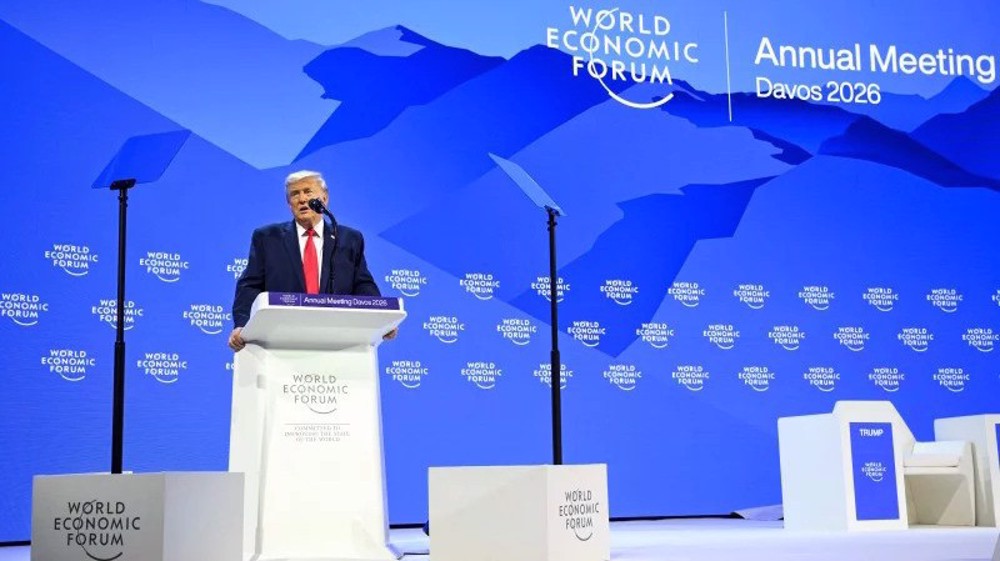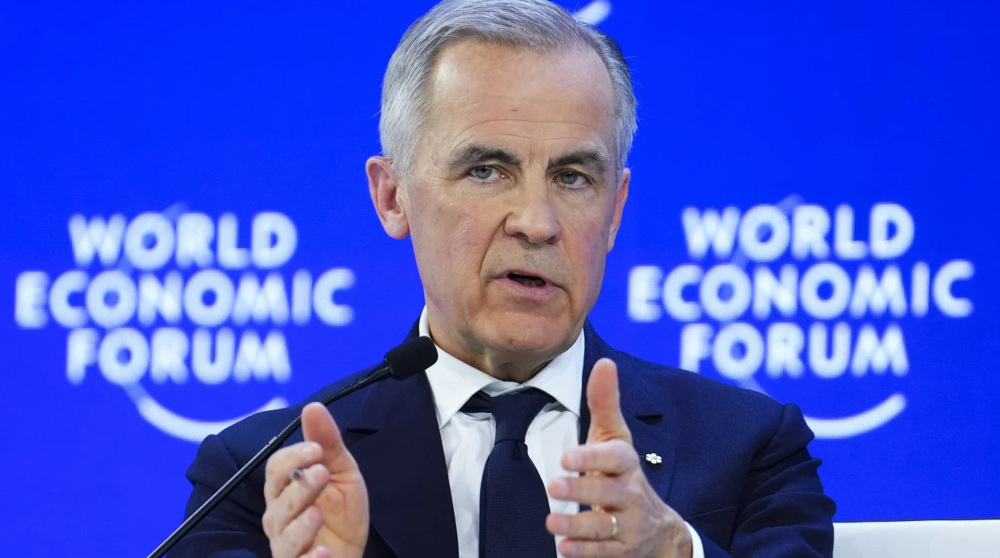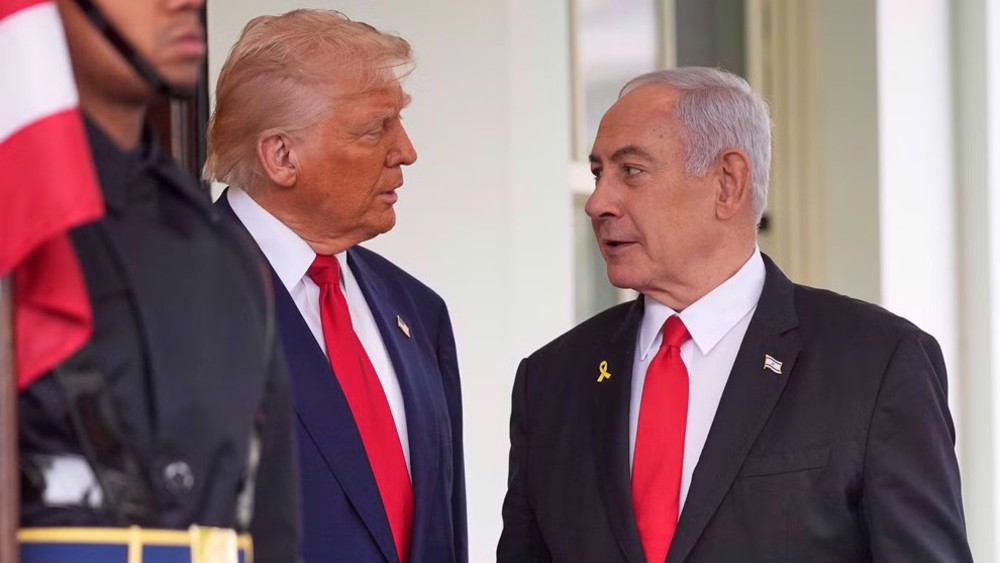US joins global push against violent extremism online
The US has for the first time joined a group of international tech giants and governments in a purported effort to stop the spread of extremist violence online, two years after a white supremacist in New Zealand livestreamed the massacre of 51 Muslim worshipers on Facebook.
The move came as part of a global effort – initiated by New Zealand Prime Minister Jacinda Ardern and French President Emmanuel Macron – to find better ways to combat the spread of “extremist violence” online while also respecting what they deem as “freedom of expression,” AP reported Friday.
The US government and four other countries joined the effort -- known as the Christchurch Call -- for the first time this year. It involves nearly 50 governments plus tech companies that include Google, Facebook, Twitter and Amazon, and is named after the New Zealand city where the brutal carnage by an Australian individual took place.
Since its launch, governments and tech companies have collaborated in some cases in identifying violent extremist content online, though Arden insisted during the virtual meeting on Saturday that more tangible progress is needed to stop it from proliferating, according to the report.
The meeting was aimed at revitalizing coordination efforts and getting more tech companies involved, with Macron and Ardern hailing the US decision to join as a potential catalyst for stronger action.
Ardern said during the meeting that two years after the Christchurch Call was launched, momentum was strong. She acknowledged, however, that the challenge in essentially playing whac-a-mole with different countries, internet platforms and algorithms that can foster extremist content.
“The existence of algorithms themselves is not necessarily the problem, it's whether or not they are being ethically used,” Ardern emphasized. “And so that is probably the biggest focus for the Call community over the next year."
She said part of the solution also came in better equipping a younger generation of internet users to have the skills to deal with radical content or disinformation when they encounter it online.
British Prime Minister Boris Johnson, who sent a prerecorded video to the meeting, claimed that authorities in his country alone had taken down more than 300,000 pieces of terrorist material from the internet over the past decade, which he described as “a tsunami of hate.”
“Terrorist content is like a metastasizing tumor within the internet, or series of tumors," Johnson added. “If we fail to excise it, it will inevitably spread into homes and high streets the world over.”
Meanwhile, White House spokeswoman Jen Psaki said in a statement, “Countering the use of the internet by terrorists and violent extremists to radicalize and recruit is a significant priority for the United States.”
She also said the importance of protecting freedom of expression and “reasonable expectations of privacy.”
Macron, who has infamously accused Muslims of extremist violence on several occasions, also asserted during the meeting that the internet had continued to be used as a tool in recent attacks in the US, Vienna, Germany and elsewhere, claiming that new European regulations against extremist content would help.
In his latest verbal onslaught against Islam and Muslims, Macron labeled a deadly knife attack in the country last month as an indication of what he called “Islamist terrorism,” saying that France would “never give in” to such radical moves.
In a violent attack in late April, a female police officer was killed by a knife-wielding assailant at a police station in Rambouillet, a wealthy commuter town 60 kilometres from the French capital, Paris.
Reacting to the deadly incident, Macron vowed on Twitter that "in our fight against Islamist terrorism, we will never give in," but provided no proof to show that the Tunisian attacker had terrorist motives or whether he was even a Muslim.
'France turning Islamophobic at heart'
Reacting to Macron’s anti-Muslim remarks, chairman of the London-Based Islamic Human Rights Commission Massoud Shadjareh said in a Press TV interview that the French president sought to use Islamophobia to attract the votes of Far-Rights in the country’s upcoming election.
“One of the main reasons that these statement are being made is because he needs to use the race card and the Islamophobic card, and because the level of Islamophobia in France is increasing, his opponents are Extreme-Right and he needs to attract votes away from the Extreme-Right to his party and himself,” Shadjareh said.
“France is now speeding towards creating a society which at the heart of it is Islamophobic,” he added.
The attack came nearly seven months after the beheading by a Chechen extremist of a teacher who showed offensive cartoons of Prophet Muhammed to his pupils in a school near Paris.
Following the terrorist attacks, the French government introduced a bill that allowed for a crackdown on groups and individuals suspected of extremism and undermining the country’s secular principles.
The bill, together with Macron’s insulting remarks against the religion of Islam and its followers, drew widespread criticism both at home and worldwide.
The debate around the bill was reignited early this month after French lawmakers added an amendment that would even prohibit minors from wearing Muslim headscarves in public.
South Korean civic leaders demand peace with North
VIDEO | Iran foreign-backed terrorist attacks: Italian diplomats decry US-Israel interference
VIDEO | Israel demolishes UNRWA structures in East al-Quds
VIDEO | Press TV's news headlines
VIDEO | 100+ days of ceasefire: Israeli killing of Palestinians continue amid Intl. silence and impunity
VIDEO | EU split over new Iran sanctions amid claims of double standards
VIDEO | Gaza’s silent plague: Mysterious virus claims lives amidst total medical collapse
VIDEO | Growing transatlantic rift












 This makes it easy to access the Press TV website
This makes it easy to access the Press TV website